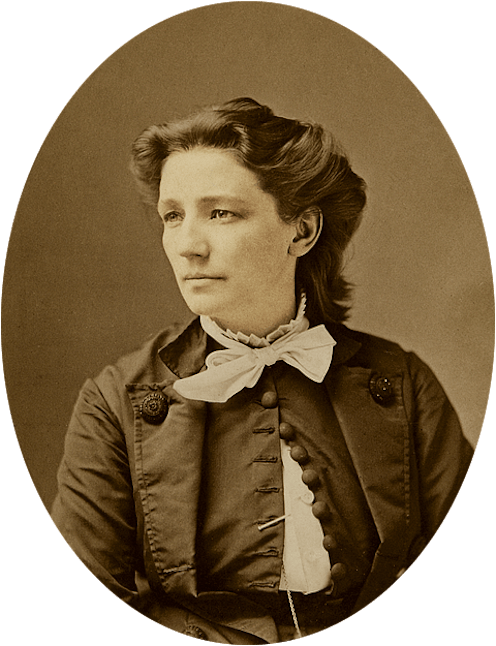
The historical drama Suffragette is in theaters, and while it tells the harrowing tale of British women getting the right to vote, their movement wasn't too dissimilar to the one American women were leading on the other side of the pond.
The U.S. women's suffrage movement picked up steam in the 1840s, particularly after the Seneca Falls Convention, the first ever gathering of its kind to discuss "the social, civil, and religious condition and rights of women." Proto-feminist heavy hitters such as Elizabeth Cady Stanton and abolitionist Frederick Douglass were there on hand to discuss the “Declaration of Sentiments and Grievances,” which laid out 12 resolutions pertaining to women's rights.
Of these resolutions, the most contested one was about the right to vote. It is the "duty of the women of this country to secure to themselves their sacred right to the elective franchise,” it read, and despite opposition from many of the men in attendance, this resolution, along with the remaining 11, were signed by the participants in an act of solidarity. While it would be nearly 70 years later that the 19th Amendment would pass, these early moments were pivotal. Although most of us learned about Douglass, Stanton or Susan B. Anthony in school, there are more lesser known suffragettes to whom we owe a debt of gratitude. Here are four more to know:
1. Lucretia Mott
Lucretia Mott was a Quaker who organized the Seneca Falls Convention along with Elizabeth Cady Stanton — and had a hand in writing the Declaration of Sentiments. She was also a founder of Swarthmore College, one of the first co-ed institutions in the United States.
2. Alice Paul
Alice Paul was a suffragette, feminist, and a leader of the National Women's Party who galvanized support for the 19th Amendment before its passage. She was also fought for gender to be included in the Civil Rights Act of 1964. The Alice Paul Foundation exists today to help foster leadership in young girls, following the path of its founder.
3. Lucy Burns
In her youth, Lucy Burns worked closely with British suffragette Emmeline Pankhurst (played by Meryl Streep in the Suffragette movie), gaining strategic knowledge about women's activism overseas with her and her daughters. Burns then applied these tactics to the U.S. movement when she co-founded the National Women's Party with Alice Paul.
4. Victoria Woodhull
Victoria Woodhull was an early advocate for free love and sexual expression, a suffragette, and the first female candidate for president in 1872. Today, the Woodhull Freedom Foundation exists to promote sexual freedom in its many forms.
Images: Lucretia Mott/Wikipedia; Alice Paul/Wikipedia; Lucy Burns/Wikipedia; Victoria Woodhull/Wikipedia